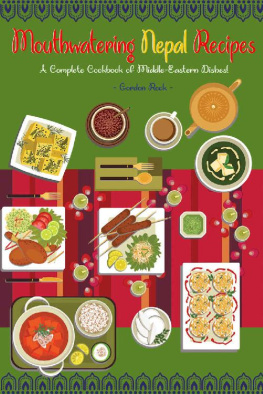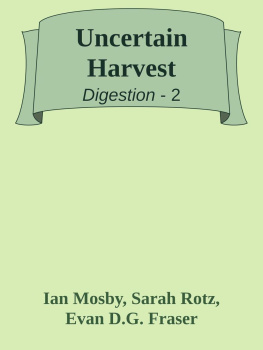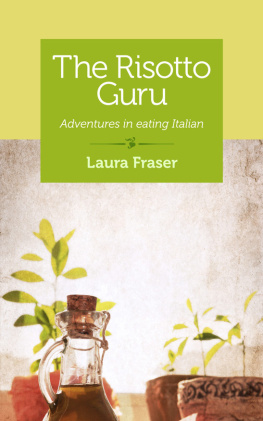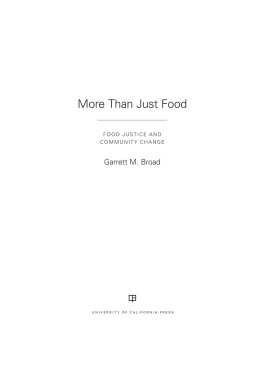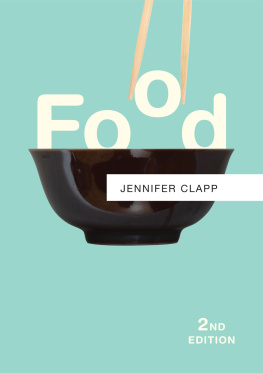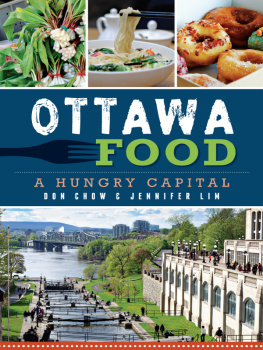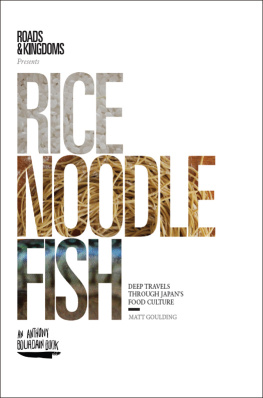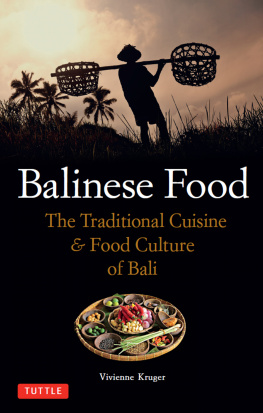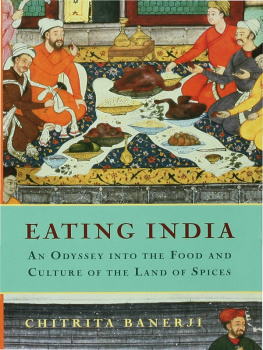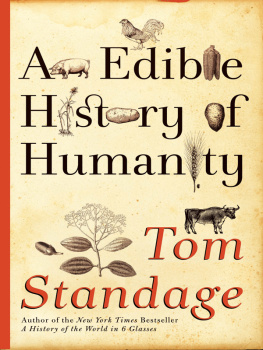E MPIRES
OF
F OOD
F EAST , F AMINE, AND THE R ISE
AND F ALL OF C IVILIZATIONS
E VAN D. G. F RASER
AND
A NDREW R IMAS

C ONTENTS
P ART I
T HE P RICE OF F OOD
Part II
T HE P RICE R ISES
PART III
E MPTY P OCKETS
This eBook is copyright material and must not be copied, reproduced, transferred, distributed, leased, licensed or publicly performed or used in any way except as specifically permitted in writing by the publishers, as allowed under the terms and conditions under which it was purchased or as strictly permitted by applicable copyright law. Any unauthorised distribution or use of this text may be a direct infringement of the authors and publishers rights and those responsible may be liable in law accordingly.
Version 1.0
Epub ISBN 9781407060149
www.randomhouse.co.uk
Published by Random House Books 2010
2 4 6 8 10 9 7 5 3 1
Copyright Evan Fraser and Andrew Rimas 2010
Evan Fraser and Andrew Rimas have asserted their right under the Copyright, Designs and Patents Act, 1988, to be identified as the authors of this work
This book is sold subject to the condition that it shall not, by way of trade or otherwise, be lent, resold, hired out, or otherwise circulated without the publishers prior consent in any form of binding or cover other than that in which it is published and without a similar condition, including this condition, being imposed on the subsequent purchaser.
First published in the United States in 2010 by
Free Press, a division of Simon & Schuster, Inc., New York
First published in Great Britain in 2010 by
Random House Books
Random House, 20 Vauxhall Bridge Road,
London SW1V 2SA
www.rbooks.co.uk
Addresses for companies within The Random House Group Limited can be found at: www.randomhouse.co.uk/offices.htm
The Random House Group Limited Reg. No. 954009
A CIP catalogue record for this book is available from the British Library
ISBN 9781847945631 (Hardback edition)
ISBN 9781847945648 (Trade paperback edition)
The Random House Group Limited supports The Forest Stewardship Council (FSC), the leading international forest certification organisation. All our titles that are printed on Greenpeace approved FSC certified paper carry the FSC logo. Our paper procurement policy can be found at: www.rbooks.co.uk/environment

Map by Jason Snyder
Printed and bound in Great Britain by CPI Mackays, Chatham, ME5 8TD
T O G ABRIELLE AND P ALOMA
E MPIRES
OF
F OOD
Praise for Empires of Food
This isnt just first class scholarship, its energetic writing. Fraser and Rimas have a knack for the little detail that unveils the big thought. Empires of Food is a must-read for anyone who wants to know why every night a billion people go to bed obese and another billion go to bed hungry.
George Alagiah
It is an absorbing, fascinating and timely book. The analysis of our social and historical relationship with food by Andrew Rimas and Evan Fraser is compelling, and their warning is stark. Best of all, its a rattling good read.
Matthew Fort
Empires of Food deals with a subject of grave importance and profound implications for the political economy of the world. Although the subject is serious, it is written in a compelling and readable style. While not pedantic or ponderous in any way, it is of impressive academic rigor. This book needs to be read and thoughtfully considered by policy-makers and citizens everywhere. And if you enjoy lunch, dont fail to read it!
John Manley, former Deputy Prime Minister of Canada
Food is powerful stuff not to be trifled with. A grand read.
Fergus Henderson, St John Restaurant
With a breathtaking sweep, Empires of Food takes us on a rollicking culinary journey through the ecological history of civilization. The result is a rare treat: hard-hitting analysis cooked to read like a captivating novel. For pure pleasure or a deeper understanding of why civilizations rise and fall, its a perfect choice for any curious mind.
Peter Dauvergne, Professor and Canada
Research Chair in Global Environmental
Politics, University of British Columbia;
author of The Shadows of Consumption
Empires of Food is a panoramic and prescient book which presents the challenges that civilizations have faced with agricultural production and societal fashions for food. The authors approach the issue with refreshing pragmatism and urge us to move towards a glocal approach to consumption norms. Their compelling narrative recognizes the value of efficient global food systems while also appreciating the importance of local connections to reduce ecological impacts. Such a vision for our palates holds much promise in balancing the debate on food ethics and sustainable development.
Saleem H. Ali, author of Treasures of the Earth:
Need, Greed, and a Sustainable Future
Evan Fraser and Andrew Rimas vividly recreate centuries of spice-filled ships and grain silos to show that while the pen and the gun may be the visible tools of diplomacy, the knife and fork are often the true instruments of human change. Their unsentimental march through our history and into the future reaches a conclusion that is both inspiring and unnerving: civilization is what we eat.
Sasha Issenberg, author of The Sushi Economy
With a flavor of Jared Diamond, Empires of Food thoughtfully weaves religion, military history, and science into a historical arc of how food undergirds civilizations rise and fall. Though the food riots of 2008 are now overshadowed by the economic crisis, Empires of Food reminds us that those violent protests are an inevitable pattern of history. Sprinkling discussions of monks and bird guano in with the Roman Empire and colonization, the book elucidates the inherent instability of how our current food infrastructure has evolved and will make you rethink how you eat.
Jennifer 8. Lee, author of The Fortune Cookie Chronicles
I NTRODUCTION
The two authors of this book have never gone hungry. Weve never even lacked an embarrassment of dried pasta choices. This is important to know because, while this book is about food as a historicaland environmental, economic, and politicalforce, the act of eating is a highly personal one. Every family has its culinary DNA. Ours were Scots Canadian (Fraser) and Lithuanian American, undercut by the influence of an ancestor from Alsace (Rimas). In the one case, this meant tuna casserole, sweet and sour spareribs, and stir-fried beef with broccoli and carrots; the other was stuffed cabbage and chicken crepes Mornay. But growing up, both of us knew the comfortable expectation of the ice cream quart, the ham sandwich on white, the stuffed tortilla bag. Eating connects us to our histories as much as it connects our souls to our bodies, our bodies to the earth. So its useful to consider that we mean sustenance when we write the word food.
Historically, sustenance has taken the form of the gritty, bland grains that kept humanity alive for ten thousand years. Yet eating is never merely the care and maintenance of cells. No species would invent chocolate ganache au crme frache for the sake of cellular health. As well as triggering at least two of the more enjoyable stimuli, eating is about society. Its about fellowship and memory, about Prousts madeleine, about our culinary hooks in the reflecting pool. At its most evolved, its the second glass of port, the bite of Camembert assessed alongside the nibble of Stinking Bishop, the fresh-shucked oyster in a porcelain dish. Eating is what all animals do, but humans do it beautifully.


